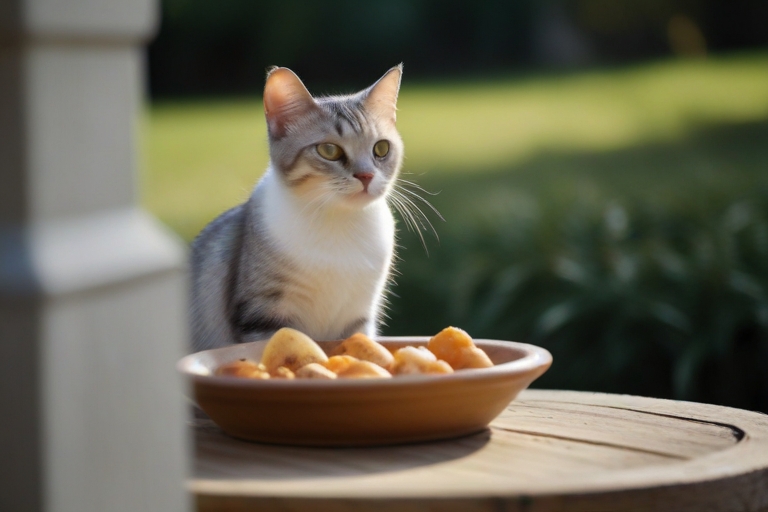Cat Nutrition: Meeting the Dietary Needs of Your Feline Friend
Introduction:
Proper nutrition plays a vital role in the overall health and well-being of cats. As a responsible cat owner, understanding their nutritional needs is crucial. This post will delve into the importance of a balanced diet, the debate between wet and dry cat food, establishing feeding schedules, and special dietary considerations that can help you provide optimal nutrition for your beloved feline companion.

The Importance of a Balanced Diet: Cats require a balanced diet that includes essential nutrients for their growth, energy, and overall health. Key components of a balanced diet for cats include:
- High-quality animal protein: Cats are obligate carnivores, meaning they require animal-based protein sources like meat or fish.
- Essential fatty acids: Omega-3 and omega-6 fatty acids support healthy skin, fur, and immune function.
- Vitamins and minerals: Ensure your cat’s diet includes vitamins A, D, E, and minerals like calcium, phosphorus, and taurine.
- Water: Cats have a low thirst drive, so a moisture-rich diet is crucial for their urinary tract health.
Wet Food vs. Dry Food: The choice between wet and dry cat food depends on various factors. Consider the following:
- Wet food: Provides higher moisture content, which helps maintain hydration. It can be beneficial for cats with urinary tract issues or those who struggle to drink enough water.
- Dry food: Offers convenience, dental benefits, and a longer shelf life. It can aid in dental health by reducing tartar buildup. However, it may not provide sufficient hydration.
Feeding Schedules: Establishing a feeding schedule promotes regularity and prevents overeating. Consider the following tips:
- Divide daily food portions into several small meals throughout the day.
- Follow the recommended feeding guidelines based on your cat’s age, weight, and activity level.
- Avoid free-feeding (leaving food out all day), as it can lead to obesity.
Special Dietary Considerations: Some cats may have unique dietary needs or health conditions that require special attention:
- Kittens: They have specific nutritional requirements for growth and development. Choose a kitten-specific food until they reach adulthood.
- Senior cats: Older cats may benefit from diets formulated to support joint health, organ function, and weight management.
- Medical conditions: Cats with certain health concerns, such as diabetes, kidney disease, or allergies, may require specialized diets prescribed by a veterinarian.
Conclusion:
Providing proper nutrition is essential for your cat’s overall health and longevity. Remember to offer a balanced diet that includes high-quality animal protein, essential fatty acids, vitamins, minerals, and adequate hydration. Consider the pros and cons of wet and dry cat food and establish a feeding schedule that suits your cat’s needs. For special dietary considerations, consult your veterinarian to ensure your cat receives the appropriate diet for their unique requirements. By prioritizing their nutritional needs, you can contribute to a happy and healthy life for your feline companion.


